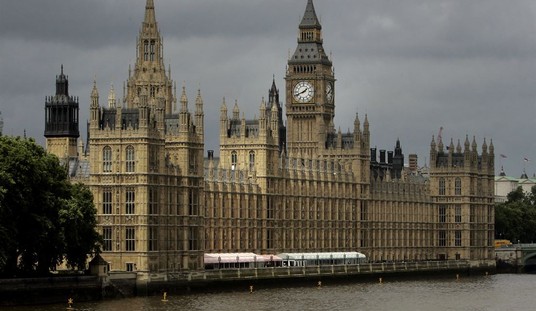As the world watches, Israel is currently locked in a violent conflict with the terrorist group Hamas, which launched a devastating surprise attack on Saturday, killing hundreds of Israeli civilians and soldiers. This marks the most significant display of military hostilities in the region in over 50 years and could become even more bloody as time goes on.
The history behind the ongoing conflict between Israel, the Palestinians, and the Arab nations is multifaceted, with several different moving parts. In understanding the current conflict between Israel and Hamas, it is important to know how they arrived at this point in history. Unfortunately, much of the material published on the Palestinian refugee crisis is skewed in a way that suggests that Zionists cropped up in Israel and began systematically expelling Palestinian Arabs.
However, the truth is far more nuanced. In this piece, I’ll give a quick history detailing how the Palestinians first became refugees living in the West Bank and Gaza Strip.
It began in 1947 in the aftermath of World War II and the creation of the modern state of Israel.
The Israeli-Palestinian conflict dates back to the end of the nineteenth century. In 1947, the United Nations adopted Resolution 181, known as the Partition Plan, which sought to divide the British Mandate of Palestine into Arab and Jewish states. On May 14, 1948, the State of Israel was created, sparking the first Arab-Israeli War. The war ended in 1949 with Israel’s victory, but 750,000 Palestinians were displaced, and the territory was divided into 3 parts: the State of Israel, the West Bank (of the Jordan River), and the Gaza Strip.
While this paragraph is factual, it does not fully encapsulate what happened during this time period or give an accurate explanation for why 750,000 Palestinians were displaced. The most common narrative is that the Israelis expelled all, or most, of those who left the region before five Arab states decided to launch an all-out war against the fledgling state of Israel shortly after it was established.
But there is more to the story.
It was during the leadup to the impending attack on Israel that many Palestinians began leaving the area of their own volition. Why? Because the Arab states that were preparing their assault warned them to evacuate their homes to avoid getting caught in the crossfire.
The London weekly Economist reported on the effects the Arab leaders had on the masses fleeing Haifa on October 2, 1948, and mentioned that “Of the 62,000 Arabs who formerly lived in Haifa, not more than 5,000 or 6,000 remained. Various factors influenced their decision to seek safety in flight. There is but little doubt that the most potent of the factors were the announcements made over the air by the Higher Arab Executive, urging the Arabs to quit...it was clearly intimated that those Arabs who remained in Haifa and accepted Jewish protection would be regarded as renegades.”
On the other hand, the Haganah, a Jewish paramilitary organization, tried to persuade the Palestinians to remain and promised to protect them from harm. A British police report explained that “every effort is being made by the Jews to persuade the Arab populace to stay to get their shops and businesses open and to be assured that their lives and interests will be safe.”
In fact, future Israeli Prime Minister Golda Meir wrote in her book “My Life” that she had been sent to the region to convince Arabs living there to stay. She notes that David Ben-Gurion, the primary founder of the modern State of Israel, told her:
“I want you to immediately go to Haifa and see to it that the Arabs who remain in Haifa are treated appropriately. I also want you to try and persuade the Arabs who are already on the beach to return home. You have to get it into their heads that they have nothing to fear. I went immediately. I sat on the beach there and begged them to return home… I pleaded with them until I was exhausted but it didn’t work.”
Some Arabs took the Israelis up on their offer, but most heeded the call of Arab nations telling them to leave. Many were afraid that if they remained and Israel was defeated, they would be branded as traitors and punished. It was a heartbreaking gamble that these individuals were forced to take.
Meanwhile, Arab armies were promising a swift victory against the newly established Jewish state. Iraq’s Prime Minister declared: "We will smash the country with our guns and obliterate every place the Jews seek shelter in.” Indeed, with five nations gearing up for war against the comparatively small Jewish force, one could hardly be blamed for believing his scenario would materialize.
But it didn’t.
What was supposed to be a quick display of annihilation turned into a prolonged conflict. As Time magazine (May 3, 1948) noted, the “mass evacuation, prompted partly by fear, partly by orders of Arab leaders, left the Arab quarter of Haifa a ghost city.”
In a rather telling moment, Haled al Azm, the Syrian Prime Minister from 1948 to 1949, admitted:
“We have been demanding the return of the refugees to their homes. But we ourselves are the ones who encouraged them to leave. Only a few months separated our call to them to leave and our appeal to the United Nations to resolve on their return.”
Jordan’s King Abdullah made a similar admission in his memoirs:
The tragedy of the Palestinians was that most of their leaders had paralyzed them with false and unsubstantiated promises that they were not alone; that 80 million Arabs and 400 million Muslims would instantly and miraculously come to their rescue.
The rest of the history of the Israeli/Palestinian conflict is fraught with complexities. There are valid questions to be asked on both sides of the equation. For instance, why did Israel not resettle the refugees after they won the War of Independence? There are also questions to ask about Israel's treatment of the refugees since the war.
Neither side in this struggle is wholly innocent. But one thing remains clear: The bulk of the blame for the Palestinian refugee crisis lies with the Arab nations who sought to destroy Israel and eliminate the Jewish people in the region. Without their actions, it is likely that the saga would have never started in the first place.













Join the conversation as a VIP Member